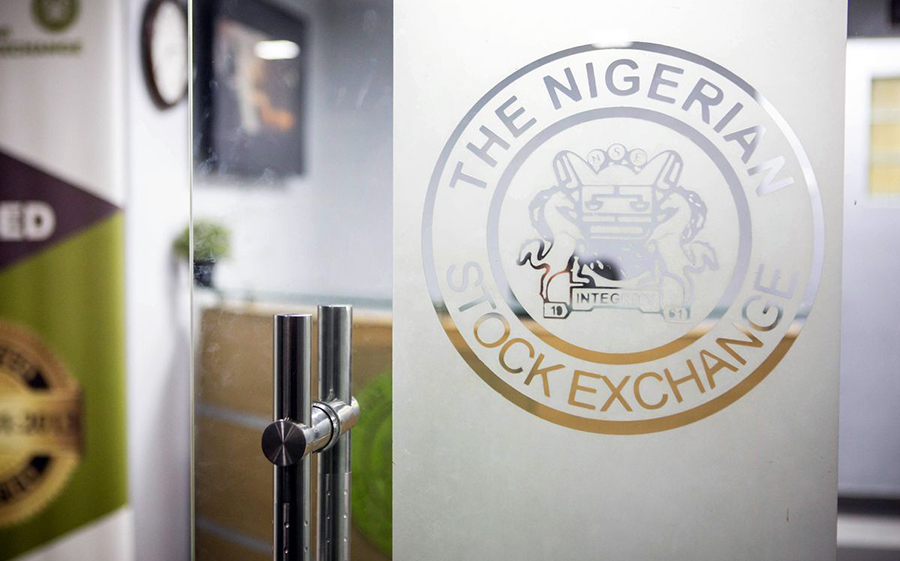The Nigeria stock market received a lot of commendations and accolades last year, after it emerged as the world’s best stock market, with a year-to-date return of over 50%. However, available data has shown that the growth has not been replicated this time around. With investors exiting the market, the Nigerian stock market appears to have thinned out in recent months.
Recent data from the Nigerian Exchange Group (NGX) revealed that the All Share Index further declined by 3.52% in May 2021, from 39,437.88 points recorded as of 30th of April, 2021 to 38,437.88 index points at the end of May 2021.
Investors in the equities market lost about N812.53 billion in value, as capitalization declined from N20.85 trillion to about N20.04 trillion during the aforementioned period.
READ: Kamaru Usman’s $1.5 million payout can buy him 29 Bitcoins and 2.8 million Dangote Cement shares
Experts have attributed a lot of factors to the growing apathy in the Nigerian stock market. For example, the Chief Executive Officer of Cowry Asset Management Limited, Johnson Chukwu, had earlier hinged this on the bedevilling twin of forex liquidity crisis and instability in the Nigerian foreign exchange market.
Regardless of the perspective, with growing insecurity, rising food prices, and economic hardship, it is anticipated that equities, being the most volatile asset class, will react to the stark reality of the Nigerian economy.
Reacting to the development in the Nigerian stock market, investors are now overweighting their fixed income portfolios and underweighting their variable income portfolios like stocks. Pension funds are no longer increasing their participation in equities, but moving new funding into fixed-income securities, due to rising rates in the fixed income space.
READ: Where to invest N100,000 right now
Corroborating this, Nairametrics Stock Select Newsletter Vol. 54, observed that pension fund administrators’ gross assets value in equities declined from 6.9% as of December 2020 to 6.4% by the end of April 2021.
On the other hand, their allocation to bank placements increased to a whopping N1.64 trillion from N1.53 trillion within the period under review, while allocation to FGN Bonds also increased from N7.3 trillion to N7.45 trillion.
Despite the bearish outlook in the stock market, some medium and highly capitalized Nigerian stocks in the last one month printed returns that would make fixed income and other alternative income instruments holders’ envious.
According to data tracked by Nairametrics, the following listed stocks are rated as the top-performing stocks for the month of May 2021. These stocks were chosen from a pool of others based on their price-performance as expressed in percentage.
READ: Are Nigerian Pension Funds killing the stock market?
- Consolidated Hallmark Insurance Plc – 69.2%*
- Royal Exchange Plc – 37.7%
- Regency Assurance Plc – 36.4%
- Eternal Plc – 26.7%
- Vitafoam Nigeria Plc – 22.2%
- Union Bank Nigeria Plc – 21.4%
- Seplat Petroleum Development Company Plc – 20.7%
- Sovereign Trust Insurance Plc – 17.4%
- John Holt Plc – 16.7%
- MRS Oil Nigeria Plc – 15.6%
Drivers
One of the driving factors responsible for the impressive performances of the aforementioned stocks is their positive Q1-2021 earnings. For example, Sovereign Trust and Consolidated Hallmark Insurance posted a surge of 43% and 39.1% respectively in their Profit after Tax for the period under review.
Some external factors like foreign exchange dynamics also played a cogent role, for example, Nairametrics had recently reported that Seplat Petroleum gained 21% in its value in one month, as investors maximized its dual listing opportunity to repatriate forex.
Also, dividend payment, growth, and consolidation, among others, could have contributed to the growth recorded in the listed stocks.
Disclaimer
It is important to state that the objective of this write-up is to give the needed insight into top-performing financial assets in Nigeria, helping investors to maintain or modify their investment strategies. Nairametrics warns that this write-up is not an investment guide or advice.
The rest of this content is for our Premium Newsletter Subscribers SSN. Subscribe here to receive this newsletter every week via your email.





















